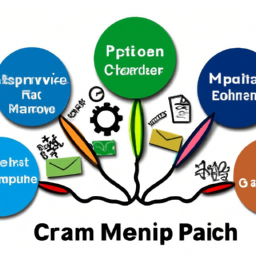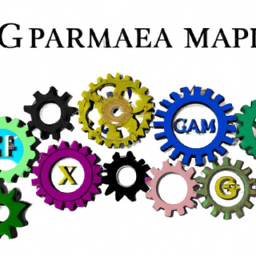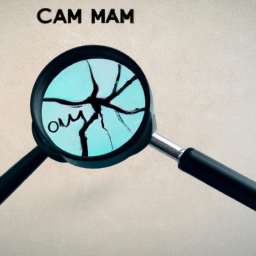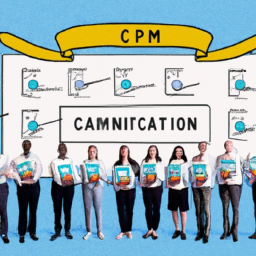Are you ready to take your career to new heights? The CAPM exam and the PMP exam are both excellent certifications that can open doors to exciting opportunities.
But which one is right for you? In this article, we will compare the two exams, examining their key differences, structure, and content.
We will also explore the eligibility requirements and the benefits and career opportunities that come with each certification.
So, buckle up and prepare to make an informed decision that will propel your professional journey forward.
Key Takeaways
- CAPM exam has 150 multiple-choice questions with a 3-hour time limit, while the PMP exam has 200 multiple-choice questions with a 4-hour time limit.
- CAPM certification focuses on fundamental project management concepts, while PMP certification covers a broader range of project management topics.
- Eligibility requirements for CAPM include a secondary degree and either 1,500 hours of project experience or 23 hours of project management education. PMP requires a four-year degree, 4,500 hours of project management experience, and 35 hours of project management education.
- CAPM certification opens new career opportunities, enhances credibility, and requires earning professional development units (PDUs) to maintain certification. PMP certification demonstrates necessary skills for effective project management, offers global recognition, increases earning potential, and provides access to a strong professional network.
Key Differences Between CAPM and PMP Exams
The key differences between the CAPM and PMP exams are important to consider when deciding which certification is right for you.
The exam format is one major distinction between the two. The CAPM exam consists of 150 multiple-choice questions that need to be completed within a three-hour time limit. On the other hand, the PMP exam consists of 200 multiple-choice questions that need to be completed within a four-hour time limit.
Another difference is the passing score requirement. For the CAPM exam, you need to score a minimum of 61% to pass, while for the PMP exam, the passing score is determined through a complex formula based on the difficulty level of the questions.
Considering these differences, it is crucial to evaluate your knowledge, experience, and time availability before deciding which certification to pursue.
Exam Structure and Content Comparison
When comparing the exam structure and content of the CAPM and PMP certifications, you’ll notice distinct differences. Both exams assess your knowledge and understanding of project management principles, but the scope and depth of the content vary. Here’s what you need to know:
-
Exam Format:
-
CAPM: Multiple-choice questions.
-
PMP: Combination of multiple-choice and scenario-based questions.
-
Content Coverage:
-
CAPM: Focuses on fundamental project management concepts.
-
PMP: Covers a broader range of project management topics, including risk management, procurement, and stakeholder engagement.
-
Study Resources:
-
CAPM: PMBOK Guide and CAPM Exam Prep books.
-
PMP: PMBOK Guide, PMP Exam Prep books, and additional resources like practice exams and online courses.
Understanding these differences will help you determine which certification aligns better with your experience and career goals. Make sure to choose the one that suits you best and invest in the right study resources to maximize your chances of success.
Understanding the Eligibility Requirements
To determine your eligibility for either certification, you should carefully review the experience and education requirements.
The exam eligibility criteria for the CAPM and PMP certifications are different. For the CAPM exam, you need a secondary degree (high school diploma or equivalent) and 1,500 hours of project experience, or 23 hours of project management education.
On the other hand, the PMP exam requires a four-year degree, 4,500 hours of project management experience, and 35 hours of project management education.
It’s important to note that the application process for both certifications involves submitting proof of your qualifications, such as transcripts, references, and project descriptions. Make sure to thoroughly review the eligibility requirements and gather all the necessary documentation before applying for either exam.
Benefits and Career Opportunities With CAPM Certification
Earning a CAPM certification can open up new career opportunities and provide valuable skills for project management roles. This certification equips you with fundamental project management knowledge and skills that are highly sought after by employers. Having a CAPM certification sets you apart from other candidates and demonstrates your commitment to the profession. Through CAPM certification, you can connect with a community of project management professionals, opening doors to mentorship and collaboration opportunities. This certification also enhances your credibility and increases your chances of landing project management roles with higher salaries and more responsibilities. CAPM certification requires you to earn professional development units (PDUs) to maintain your certification, ensuring you stay updated with the latest project management practices. Obtaining a CAPM certification is just the beginning of your journey towards career advancement in project management. Now, let’s explore the advantages and career growth opportunities with PMP certification.
Advantages and Career Advancement With PMP Certification
Once you obtain a PMP certification, you’ll have access to a wider range of job opportunities and the potential for greater career advancement in project management. The advantages of having a PMP certification are numerous.
Firstly, it demonstrates to employers that you have the necessary skills and knowledge to effectively manage projects and deliver successful outcomes. This can make you a highly sought-after candidate for project management positions.
Additionally, the PMP certification is recognized globally, allowing you to explore job opportunities both domestically and internationally.
Furthermore, having a PMP certification can lead to increased earning potential. Studies have shown that PMP-certified professionals tend to earn higher salaries compared to their non-certified counterparts.
The PMP certification also provides you with a strong professional network, giving you access to a community of project management practitioners and experts.
Overall, obtaining a PMP certification can open doors to exciting career opportunities and pave the way for career advancement in the field of project management.
Frequently Asked Questions
What Is the Passing Score for the CAPM and PMP Exams?
The passing score for the CAPM and PMP exams is determined by the Project Management Institute (PMI).
To obtain the CAPM certification, you must score at least 61% out of 150 questions.
For the PMP certification, the passing score is kept confidential by PMI, but it is generally understood to be around 61% as well.
The exam duration for CAPM is three hours, while the PMP exam lasts for four hours.
Are There Any Prerequisites or Professional Experience Required to Take the CAPM or PMP Exam?
To take the CAPM or PMP exam, you need to meet certain prerequisites. These requirements include having professional experience and meeting the qualifying criteria set by the examination board.
Professional experience is an important factor in determining eligibility for both exams. So, before considering taking either exam, make sure you have the necessary experience and meet the examination criteria.
It’s like preparing for a marathon – you need to train and meet the prerequisites before you can participate.
Can I Take Both the CAPM and PMP Exams?
Yes, you can take both the CAPM and PMP exams simultaneously if you meet the eligibility requirements for both certifications.
However, it is important to carefully consider which certification is the right fit for you and aligns with your career goals.
The CAPM is designed for individuals with limited project management experience, while the PMP is for experienced project managers.
Assess your skills, experience, and future aspirations to make an informed decision about which certification to pursue.
How Long Is the Certification Valid for Both CAPM and Pmp?
The certification validity for both CAPM and PMP exams is three years. After that, you will need to renew your certification.
It’s important to note that the passing score for the CAPM exam is lower compared to the PMP exam. While the PMP exam requires a passing score of 61%, the CAPM exam only requires a passing score of 50%.
This means that the CAPM exam may be a good starting point for those who are new to project management.
Are There Any Discounts or Financial Assistance Available for the CAPM and PMP Exams?
There are indeed discounts and financial assistance available for both the CAPM and PMP exams. Many organizations and professional associations offer discounts to their members, so it’s worth checking if you qualify for any of those.
Additionally, some exam prep providers may offer financial assistance or scholarships to help offset the cost of the exams.
It’s always a good idea to explore all available resources to make the certification process more affordable.
Conclusion
In conclusion, choosing between the CAPM and PMP exams depends on your career goals and experience level.
While the CAPM certification offers a solid foundation for aspiring project managers, the PMP certification is a more advanced and prestigious qualification.
It is worth noting that only 65% of candidates pass the PMP exam on their first attempt, highlighting the rigorous nature of the certification process.
By obtaining either certification, you open doors to lucrative career opportunities and demonstrate your commitment to professional growth in the field of project management.























